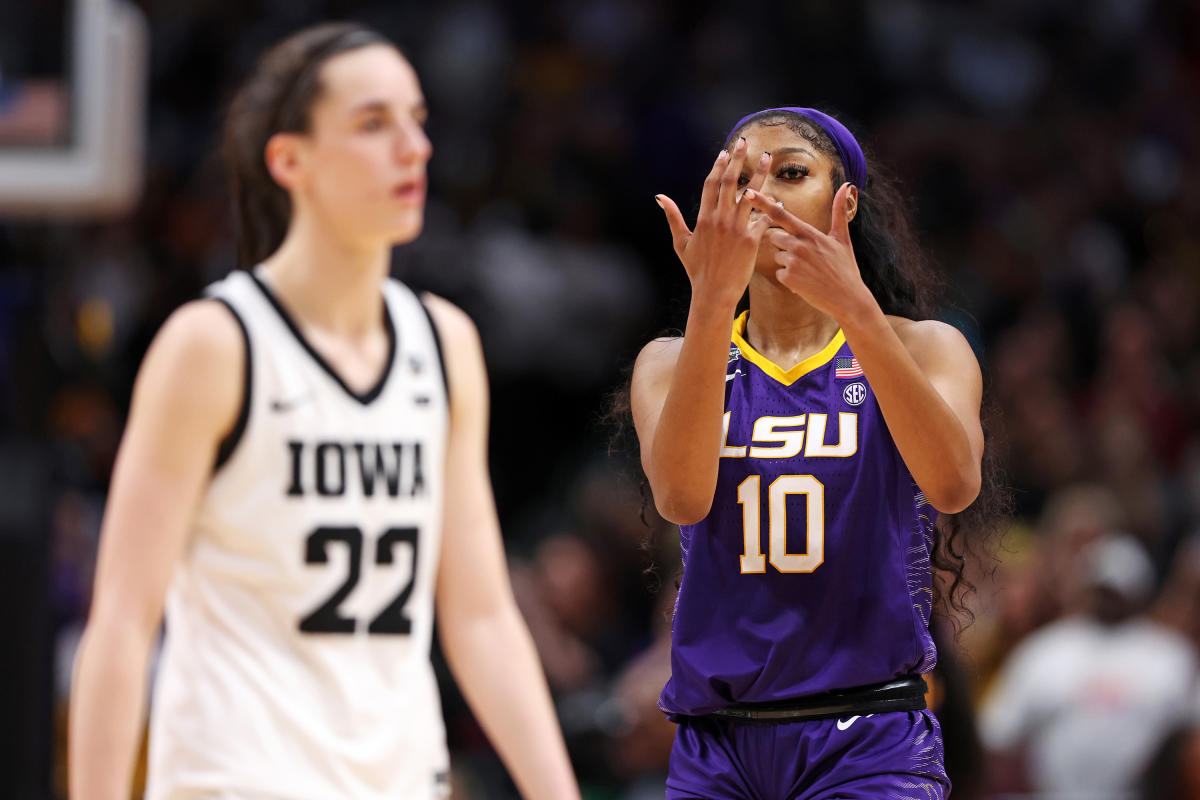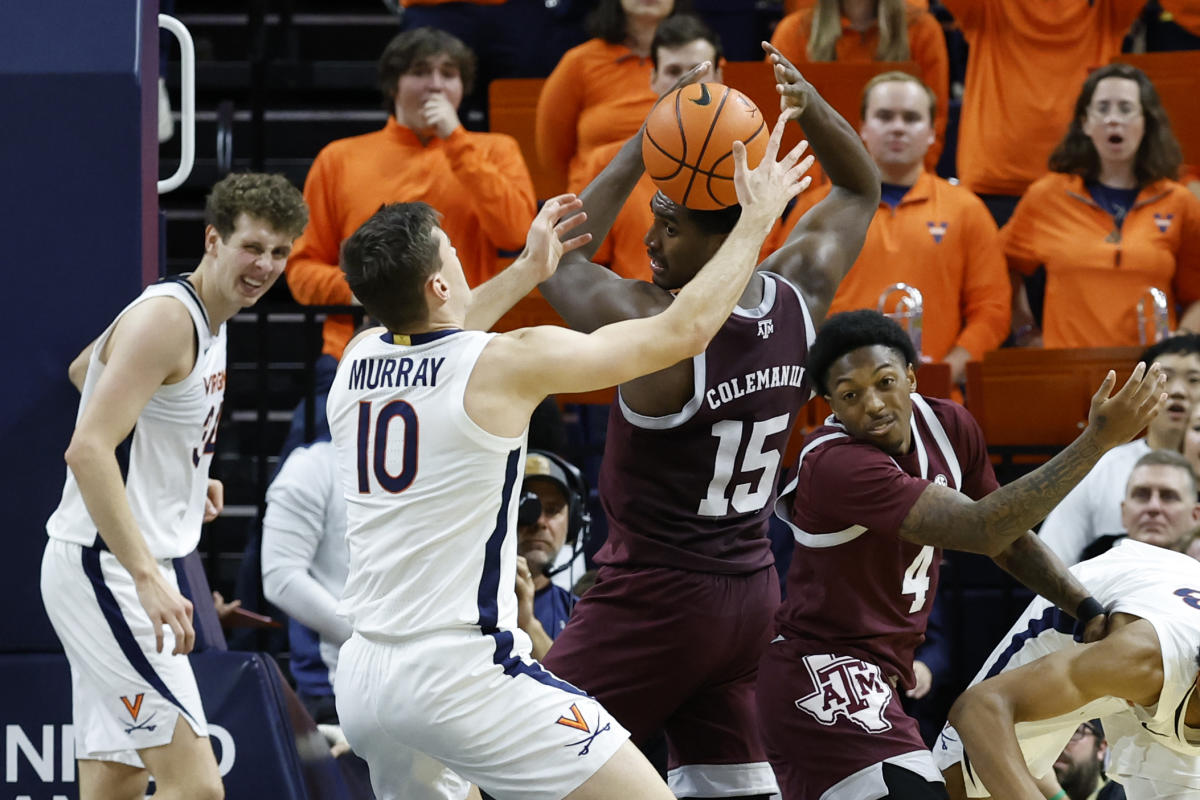CHICAGO — The WNBA has always had rivalries, but this season felt different.
On Sunday night, I visited Nisei Lounge, a popular Chicago baseball bar, with an out-of-town visitor. The bar was relatively quiet, with only a few regulars and us. The televisions were tuned to either the “Sunday Night Football” game between the Philadelphia Eagles and Miami Dolphins or the all-Texas American League Championship Series between the Rangers and Astros.
As we sat and enjoyed our drinks, a woman at the bar started telling us about a segment on the Peacock series “Brother From Another” that focused on the WNBA.
“I didn’t realize there was so much drama behind the scenes in the WNBA!” she exclaimed. “I mean, I watched the games, but I had no idea all this was happening.
In the segment she mentioned, host Natalie, culture commentator Dawn Montgomery, Fox Sports Radio’s Kelsey Nicole Nelson, and Grow the Game founder Subria Whitaker discussed the trash talking during this year’s WNBA Finals between the Las Vegas Aces and New York Liberty.
The four women recalled previous instances of trash talk from the Liberty and elaborated on how the rivalry between the two teams was “personal.”
Last week, the Aces became the first team in 21 years to win back-to-back WNBA championships. After their 70-69 victory in the decisive Game 4, Aces superstar A’ja Wilson was overwhelmed with emotion while sitting on the court.
Throughout the season, Wilson and the Aces were on a collision course with the Liberty. New York had a 3-2 advantage in the regular-season series, including the in-season Commissioner’s Cup tournament, and the Finals matchup was one of the most anticipated in WNBA history.
Liberty star Breanna Stewart was named the regular-season MVP, with Wilson and Connecticut Sun’s Alyssa Thomas as the other contenders. Wilson received a single fourth-place vote; otherwise, they were the top three on every ballot. Thomas received the most first-place votes, but Stewart won the award based on the weight of 23 second-place votes.
So, the stage was set for the Finals and the beginning of a rivalry that I hope will be talked about for years to come.
The Aces won the first two games and were on the verge of a sweep when the series moved to Brooklyn for Game 3 — but the Liberty had other plans. In what seemed like a last-ditch effort to make something happen, Stewart, former Chicago Sky veteran Courtney Vandersloot, and 2015 Sky draft pick Betnijah Laney helped the Liberty defeat the Aces, forcing another game.
At the end of the comeback win in Game 3, Liberty guard Sabrina Ionescu mimicked the “night-night” celebration gesture, sparking a buzz on social media. Could the Liberty, who added Stewart, Vandersloot, and former MVP Jonquel Jones in the offseason, even the series at home?
Taunting your opponent when you’re down 2-1 and facing a second elimination game was certainly a bold choice, but in sports, it’s simply the mark of a competitor who is in the zone. And some fans of the game really enjoyed it.
“Oh, they were messy,” one bar patron said on Sunday. “They have a genuine dislike for each other.”
The conversation at the bar was lively — the kind you would expect to hear about any other sport in any sports bar in America. Everyone in the small group had an opinion. Eventually, the discussion shifted from the Liberty to the Aces.
After winning a closely contested battle in Game 4, the Aces seemed to have compiled a dossier of things said about the team that they were now responding to. Guard Sydney Colson took the microphone from ESPN’s Holly Rowe and declared, “People wanted to count us out because we had two of our starters injured, but they don’t know that we have some fierce competitors on this team. So I have two words to say: night-night!”
Colson, not so subtly taunting Ionescu, later revealed that the Liberty star had told her to “take her ass to the bench” during Game 3.
After overcoming injuries and carrying the weight of trash talk throughout the season, the Aces, who were favored to win from the start, responded. In the days between the final game and the championship parade, the players took to social media to let everyone know they saw and heard it all.
And some fans just couldn’t handle it.
The Aces were called “classless,” “uneducated,” and a host of other insults. But people, whether they liked the Aces or not, were watching. They were talking about it. The rivalry, the trash talk, was great for the league.
Because let’s make it clear: There is nothing wrong with women engaging in trash talk. This notion that women’s sports are delicate is absurd. These athletes are competing at the highest level of their game and releasing some steam.
As we’ve seen over the years, athletes can take any perceived offense and use it as motivation. Colorado football coach Deion Sanders said Colorado State coach Jay Norvell “made it personal” when Norvell made comments before the teams’ game in September insinuating Sanders wasn’t raised properly.
Moreover, just because they play in the same league doesn’t mean players have to be friends. I’m sure we’ve all encountered coworkers from other departments whom we didn’t particularly like.
I would be remiss if I didn’t mention another layer to how the trash talk was received. The Aces have more Black players than the Liberty. Women’s basketball content creator Lauren Dreher pointed out that she saw this dynamic happening from the start of the season.
“The trash talk is fine,” she said. “The problem lies in the response to the trash talk. In women’s sports, we often point out male fragility and misogyny because we understand the foundations of it.
“But we fail to understand racism. We fail to understand that when you have a women’s league dominated by Black women, it becomes an issue. You can’t have one without the other. We saw it play out at the end of the women’s college basketball season, and now we see it here.”
Dreher was referring to the discourse that occurred after the 2023 NCAA Tournament final. Iowa’s Caitlin Clark and LSU’s Angel Reese became the faces of the trash talk as people debated whether it was acceptable for Reese to make gestures while seemingly ignoring that Clark had done the same in the past.
Dreher went on to say that when she points out the intersection of race and misogyny, it upsets others because they view the discussion as an attack on white players. However, she clarified, “it’s not an attack on the players; it’s an attack on the system.”
As women’s sports continue to grow their audience, we as viewers must evolve alongside them. We need to understand that it’s impossible to separate the game from the individuals playing it. Trash talk, on the surface, is harmless. It’s the ugliness beneath that we should combat.
Back at the bar, the spirited conversation about the WNBA persisted.
“So, do you all think the Aces can repeat next year?”

Rachel Adams is your WNBA insider, delivering comprehensive coverage of women’s basketball. With a commitment to highlighting the talent and achievements of WNBA players, she provides game analysis, player profiles, and inspiring stories from the league.




:no_upscale()/cdn.vox-cdn.com/uploads/chorus_image/image/72931262/usa_today_21973134.0.jpg)


